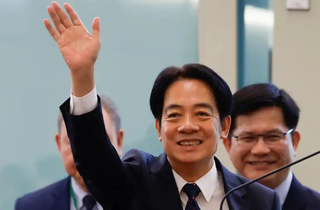However, despite Lai's victory, the DPP lost its majority in parliament due to public frustration with domestic issues like housing costs and stagnant wages.
Lai, who secured 40% of the vote, emphasized the need for cooperation and dialogue with Beijing on an equal basis to replace confrontation. While he pledged to maintain the status quo in relations across the Taiwan Strait, he remains determined to safeguard Taiwan from threats and intimidation by China.
The election took place amid growing geopolitical tensions between Beijing and Washington, with China engaging in increased military activity in the Taiwan Strait since the last election in 2020.
China's Taiwan Affairs Office, while maintaining its stance on national reunification, struck a gentler tone in response to Lai's election, expressing willingness to work with relevant political parties and groups to advance peaceful cross-strait relations.
Lai's victory signifies a historic moment in Taiwan's democratic history, although challenges lie ahead as the DPP lost its parliamentary majority. Lai acknowledged the need for improvement and offered cooperation with electoral rivals to address Taiwan's problems. The election turnout was around 72% of the nearly 19 million eligible voters in the island of 23 million.
The People's Republic of China (PRC) claims sovereignty over Taiwan and asserts a "One-China" policy, considering Taiwan as a part of its territory. The PRC insists that Taiwan must reunify with the mainland, and it opposes any move towards formal independence. (ILKHA)
()



 Dünya
Dünya
 Dünya
Dünya
 Dünya
Dünya
 Dünya
Dünya
 Güncel
Güncel
 Güncel
Güncel
 Dünya
Dünya
 Dünya
Dünya
 Dünya
Dünya
 Güncel
Güncel





